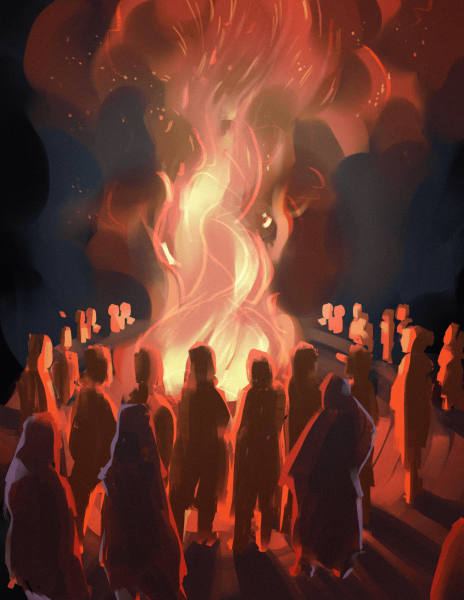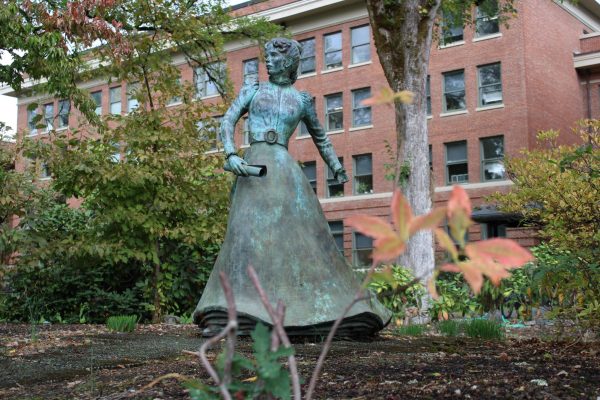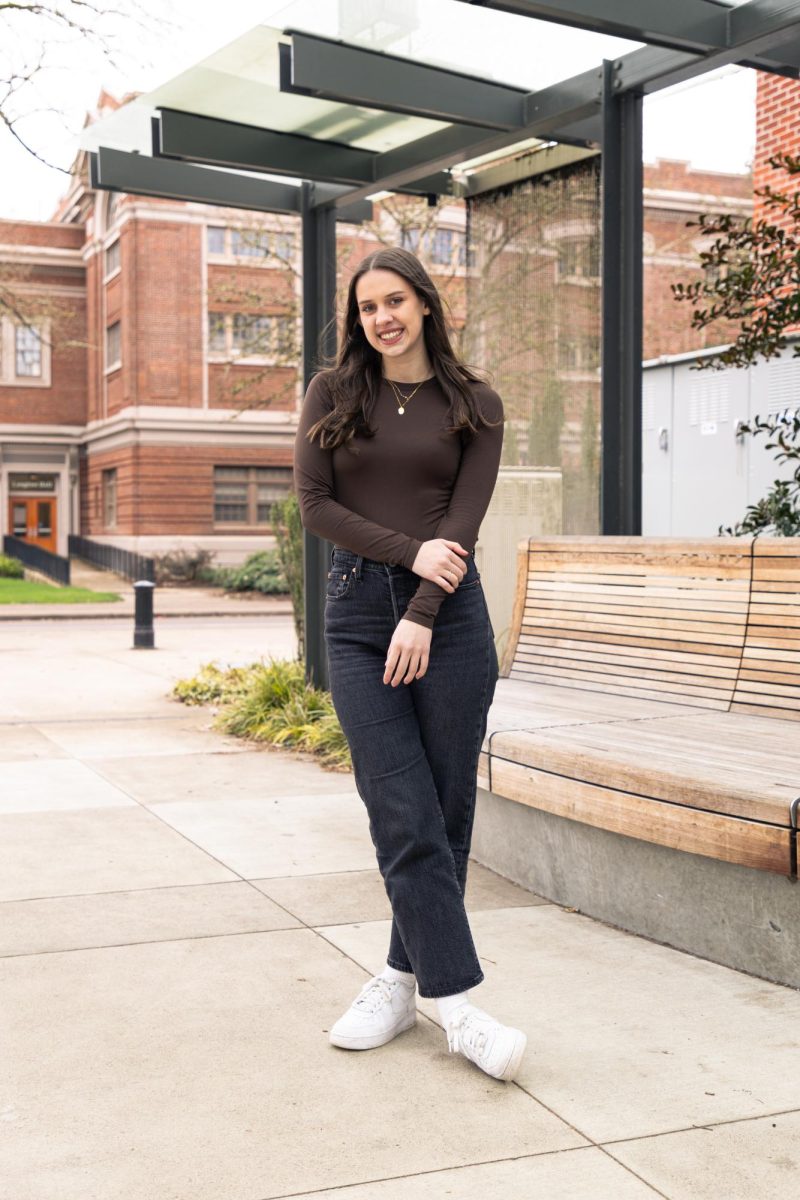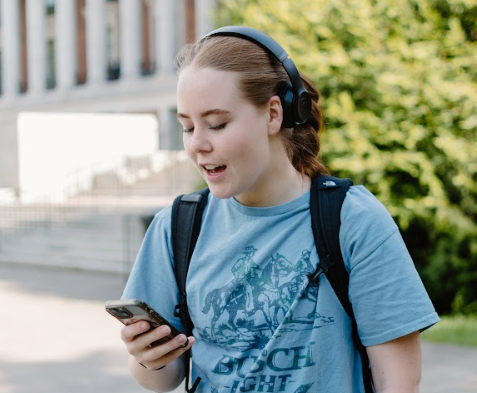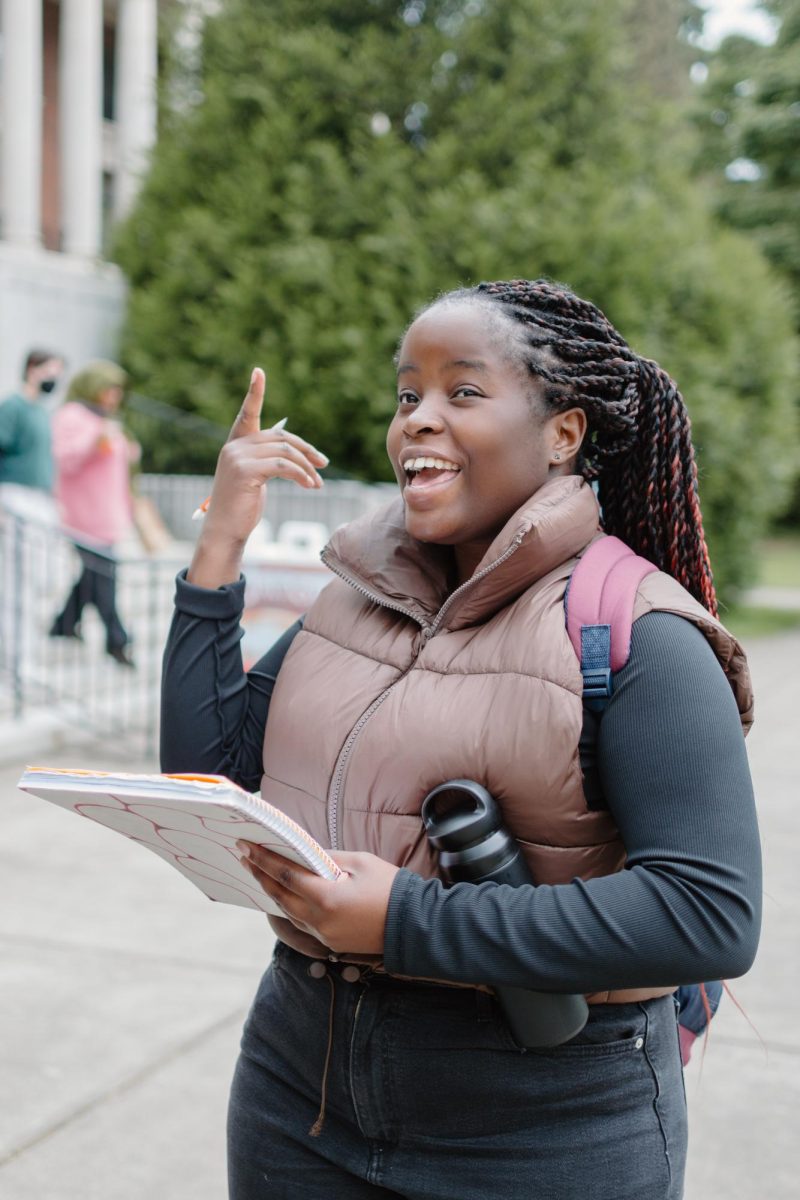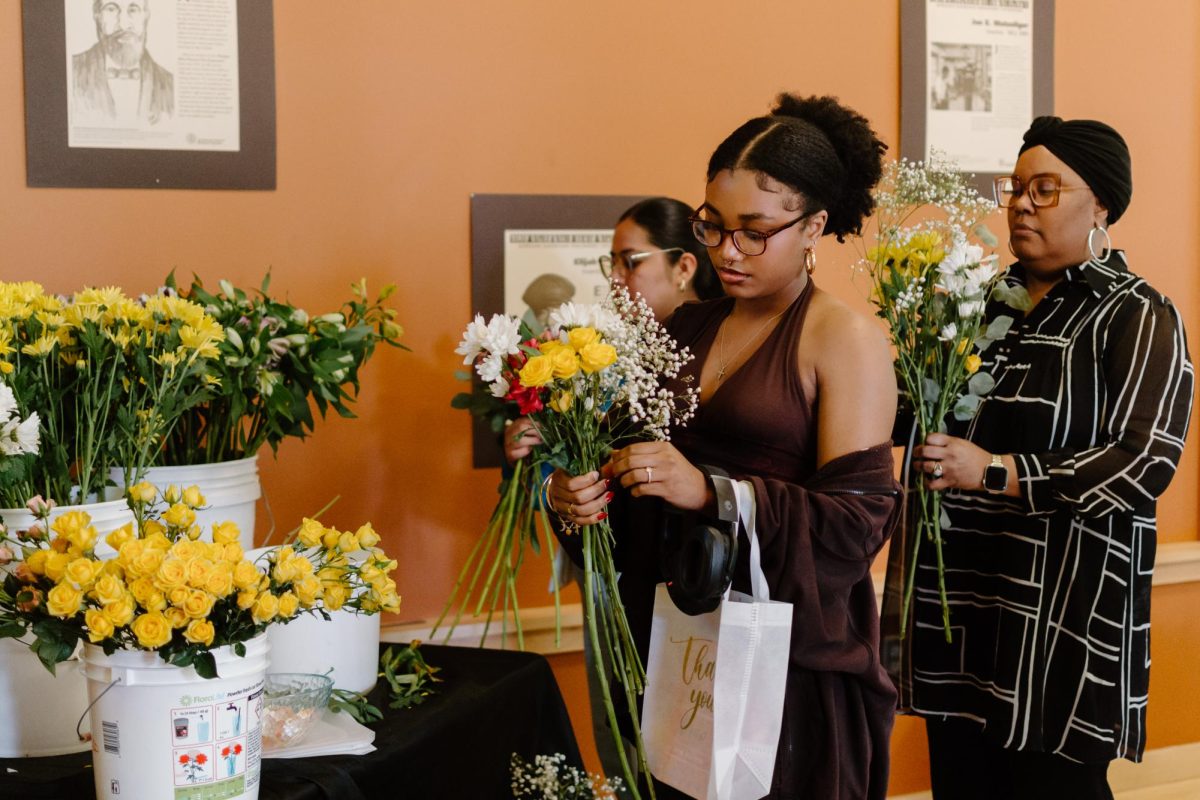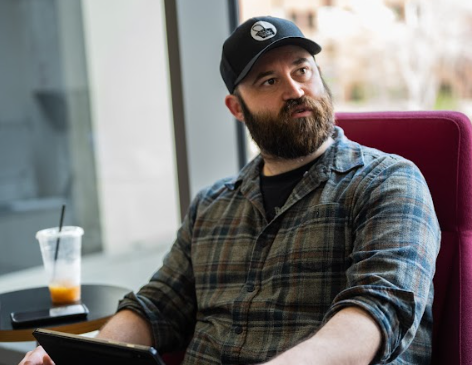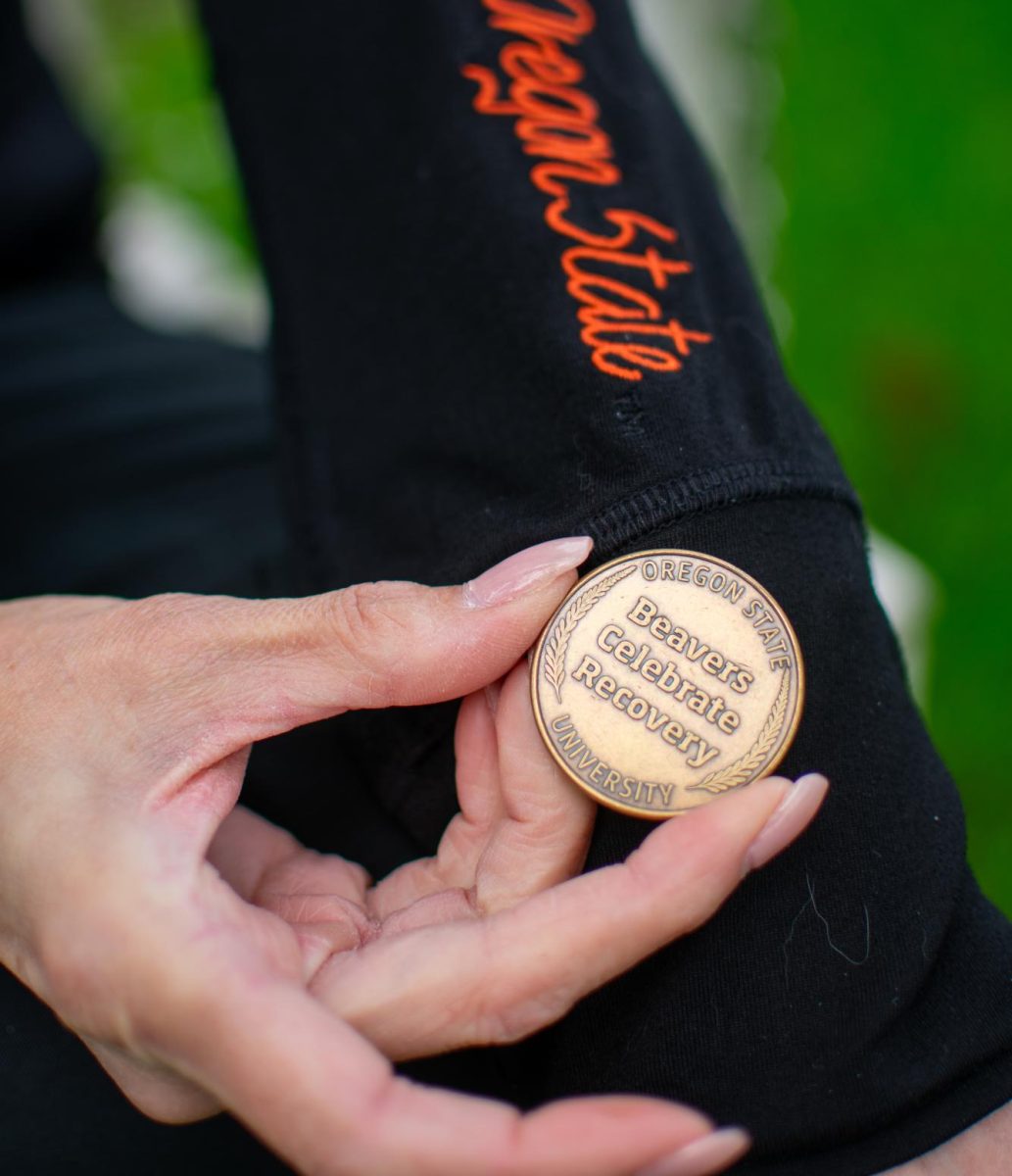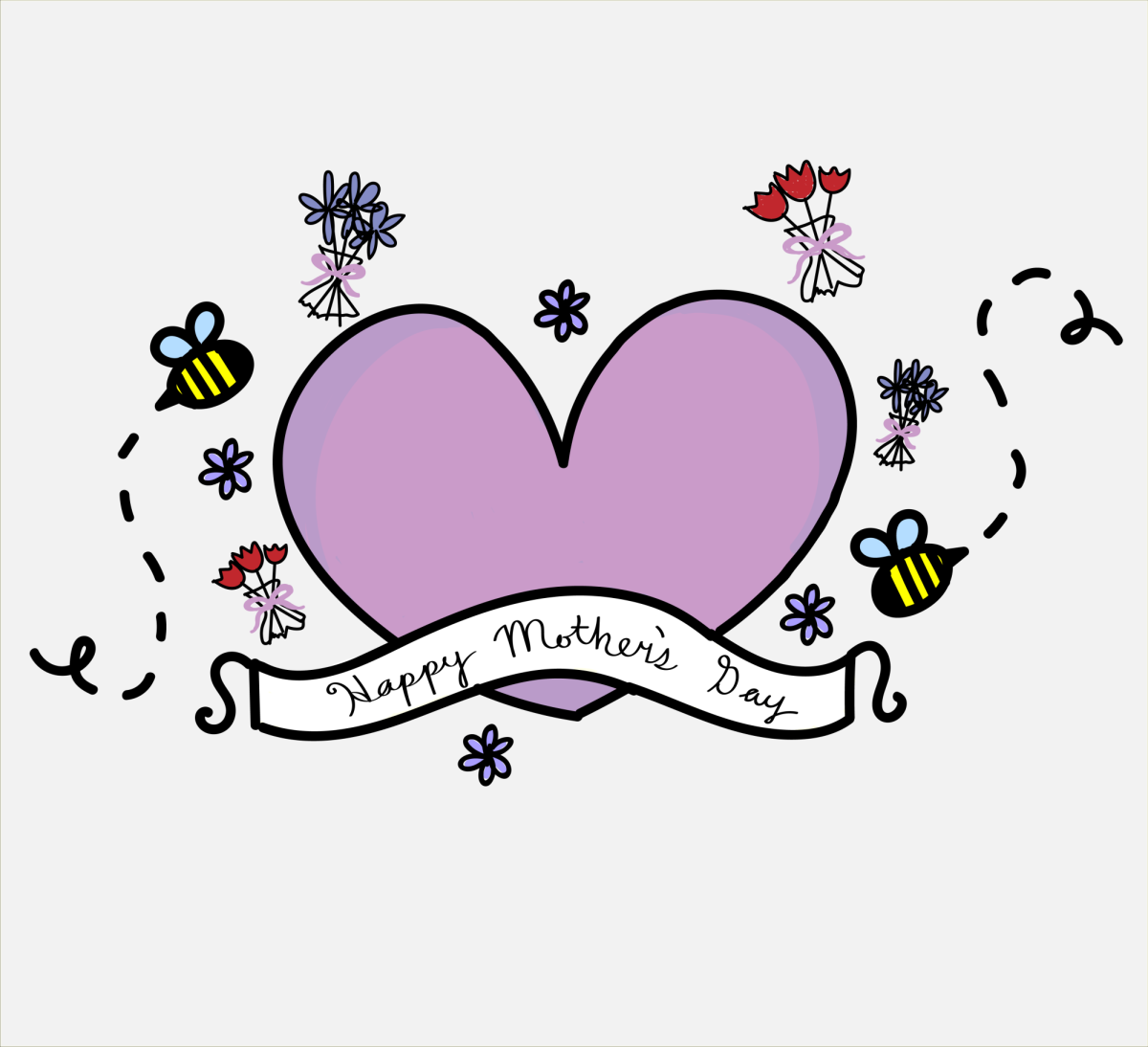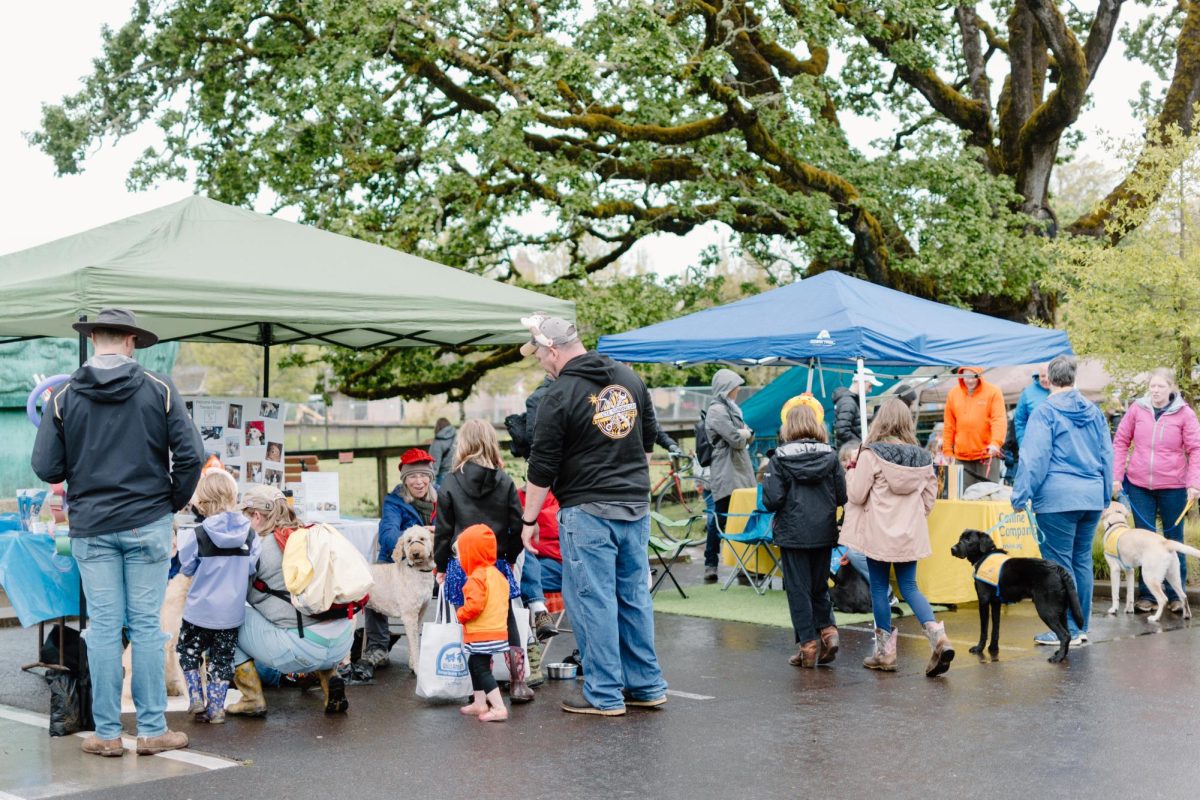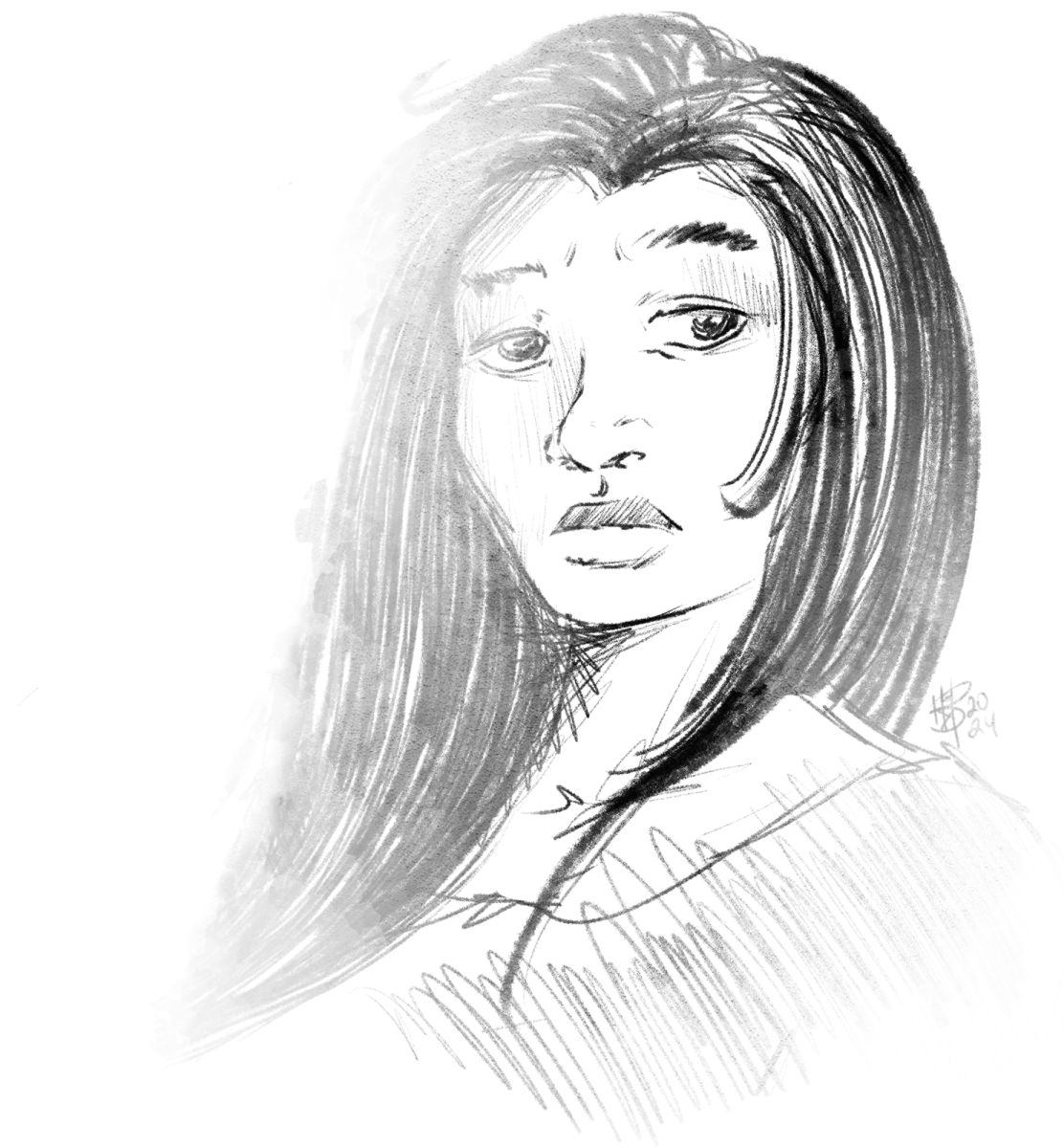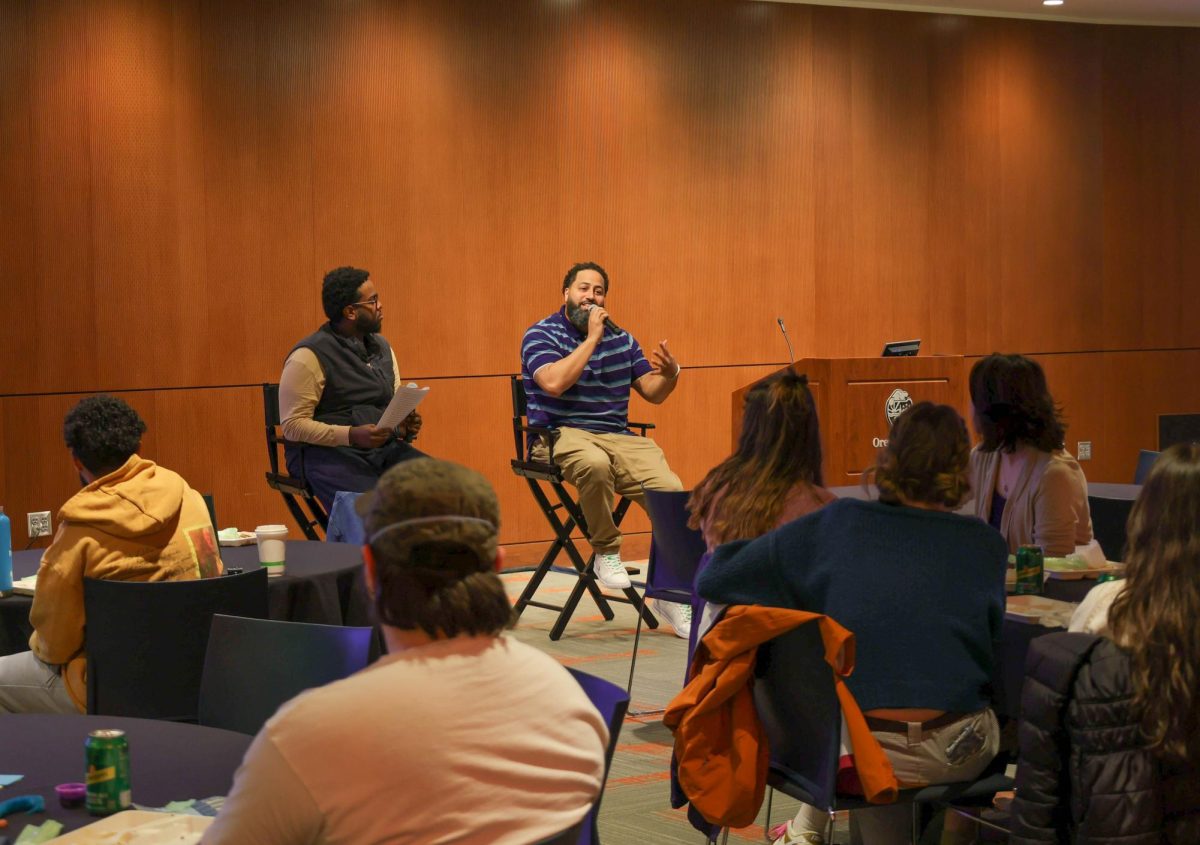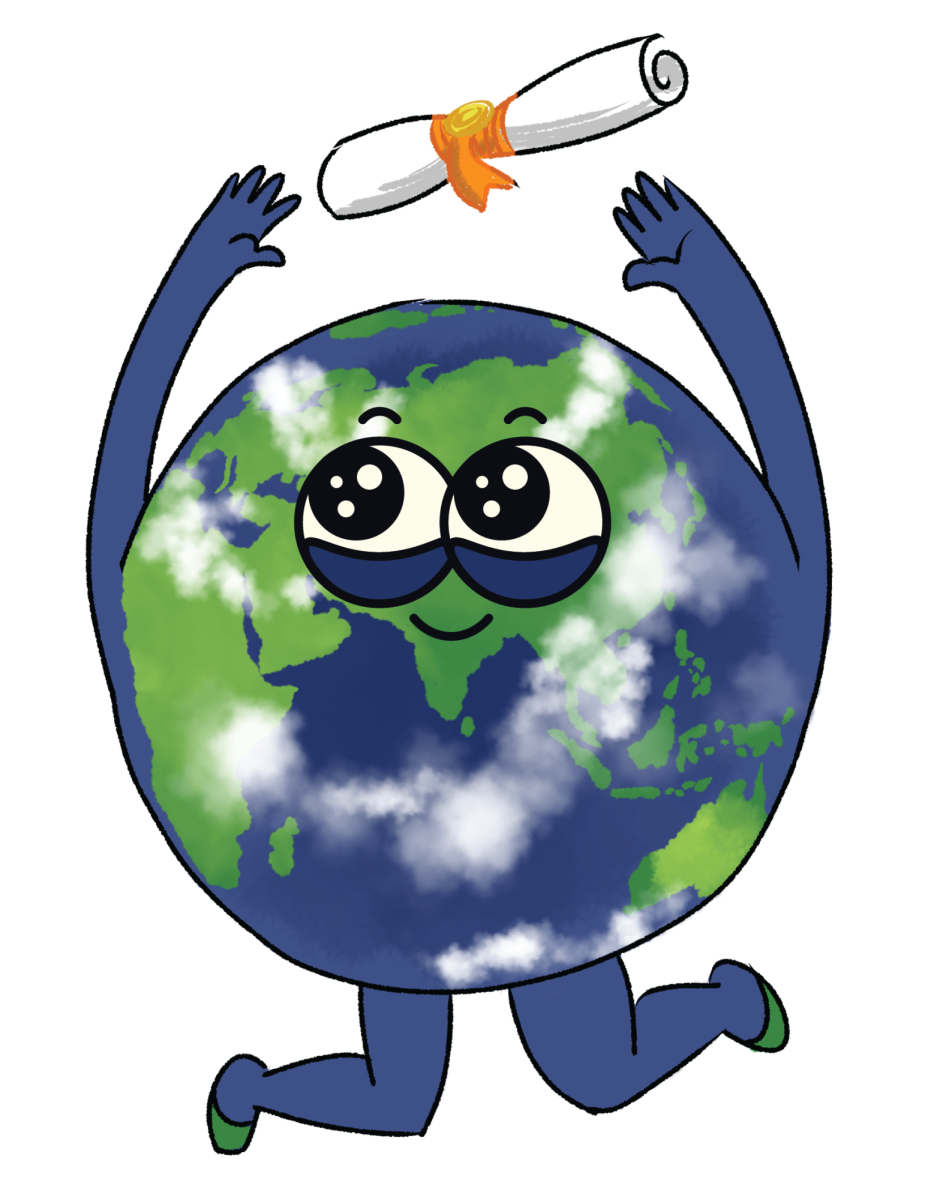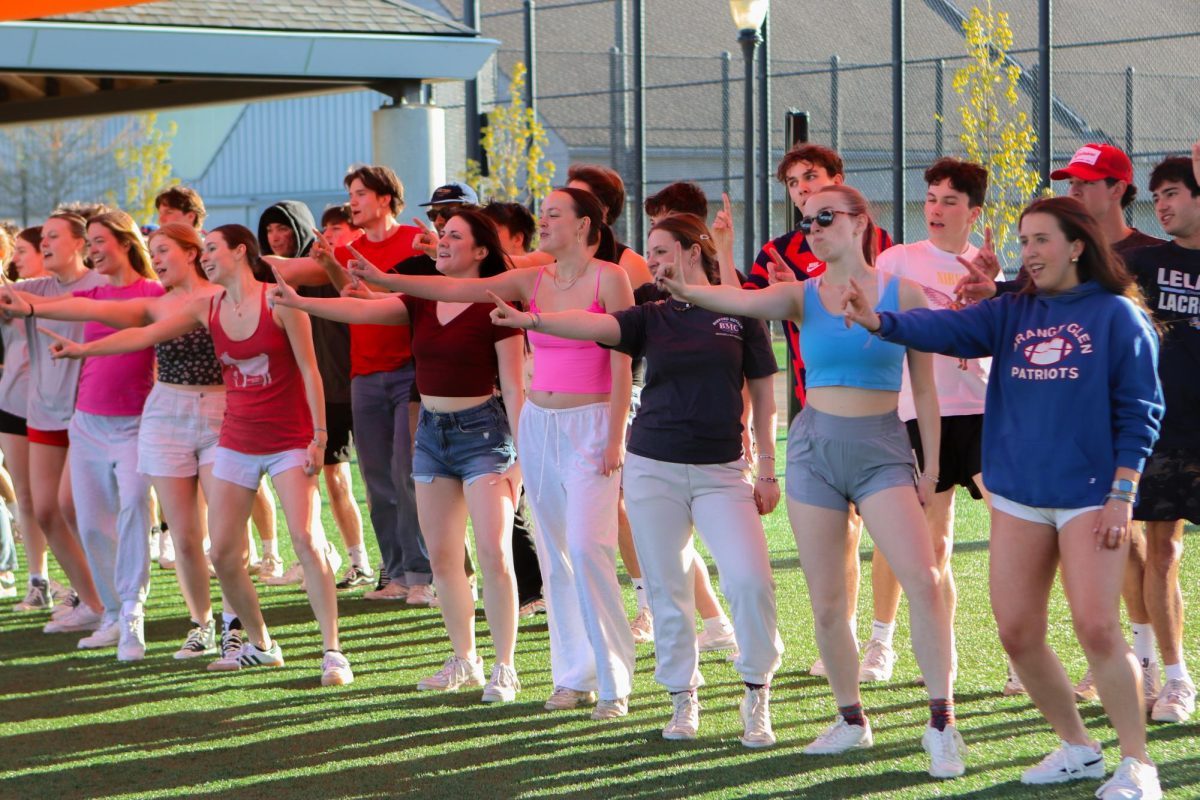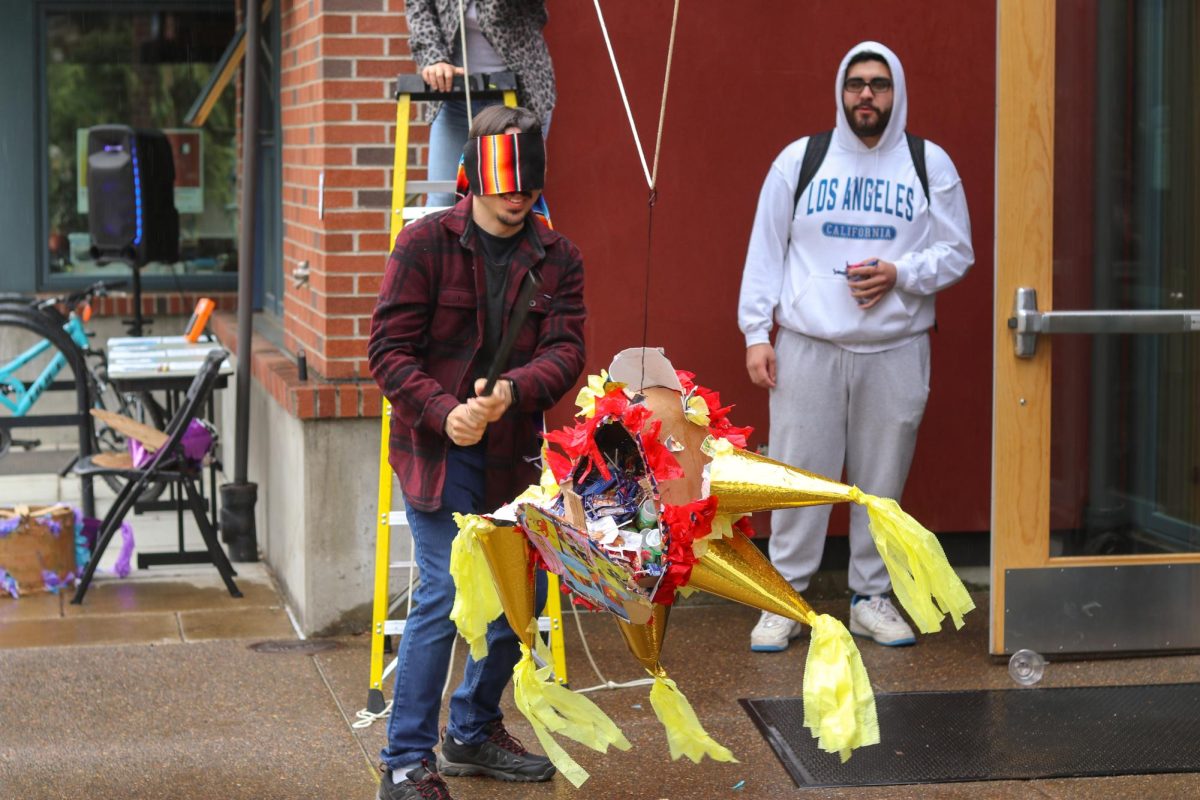For many young students, the climate crisis increased dramatically within our lifetime. Often we sit through lectures where older people explain the mess of a situation we are in and how it is “our generation’s” duty to solve these problems created by the generations before us.
This can feel frustrating, overwhelming and disheartening for many. According to a Pew Research survey from 2021, 69% of Gen Z (those born after 1996) said they felt anxiety about the future when they saw online content addressing climate change which was 10 to 30% higher than social media users from older generations.
However, many passionate Oregon State University students are paving the way forward and letting the weight of the crisis propel them to make a difference.
Faisal Osman, a fourth-year student majoring in public policy with a focus in environmental policy and a minor in sustainability, hopes to use his degree to work on making policies to support marginalized communities disproportionately impacted by climate change.
“There’s a lot of frustration that I feel because it’s our generation (that has) to clean up the mess that was made,” Osman said.
On campus, Osman is the Program Specialist for the Office of Community Engagement, the president of the NAACP Corvallis chapter, a member of the Alpha Phi Alpha fraternity, and is on the Cascadia Coastal Hazards and Resilience research team.
One of the things he wanted to work on at OSU was creating a platform for BIPOC students affected by sustainability issues. Osman said that initially, he wasn’t interested in sustainability because he didn’t feel welcome in environmental spaces that are most often dominated by white people.
“I was like, ‘That’s not okay’ because, again, those who are most impacted are Black and brown folks and poor people,” Osman said.
One of his successes last year was organizing an event where he invited Lisa Davis, the executive director of Imagine Black, a nonprofit from Portland that works to build political participation of Black folks. She spoke about her organization’s work on Afro Ecology, a framework meant to address environmental justice in Oregon.
Osman remembered wanting to learn more about the issues when taking his first environmental science class at OSU when the professor had made a comment about population control that upset him.
The professor talked about how the high fertility rate in Africa was a big environmental problem.
“I have 10 siblings, five brothers, five sisters and that frustrated me,” Osman said. “Why would you talk about African countries needing to stop having babies when again, we’re the ones contributing the least?…When you’re low income and you’re poor, when you don’t have enough resources, you just have to be sustainable.”
Osman said that he gets his energy for this work by remembering all the people who came before him and advocated for these issues, especially since it was Black organizers who started the environmental justice movement.
“You have to remember, where I’m at right now is because of other people’s hope, other Black folks’ hope,” Osman said.
Addie Rang, a fourth-year honors college student double majoring in agricultural sciences and international studies, hopes to work in international agriculture and diplomacy or in food systems as a career.
Rang said she feels the current climate crisis has “heavily” influenced her career aspirations. She explained that agricultural production has had many negative consequences in the past and she feels motivated to work and change that.
Rang gave the example of our global economic system where grocery stores here have pears from Brazil.
“It is crazy to see how much food goes to waste, and there are so many who are still food insecure,” Rang said.
At OSU, Rang is vice president of the Collegiate Farm Bureau, a member of Sigma Alpha, the agriculture sorority, and works at the beehives on campus.
For her honors thesis, she is doing research on stingless bees and spent the summer in Thailand learning about their properties.
Rang first got involved with beekeeping after watching a film about bees in her eighth-grade classroom. She said she remembered leaving class thinking “The bees are dying and I want to make a difference.”
So, she started going to her local community bee-keeping meetings with her mom and now they have two hives at their house.
Rang said that climate impacts such as wildfires and extreme heat are putting extra stress on bees, which makes them less likely to leave the hive and pollinate during those times and in turn they are making less honey.
Pollinators are an important part of the food production process and she has learned how invasive honey bees are pushing out the native bees in our country.
“I definitely feel the soul-crushing weight of ‘ahh what are we going to do?’” Rang said.
However, she feels a lot of work and effort is going into making agriculture practices more sustainable. She said we have become disconnected from the agriculture process, unlike generations before, and that there needs to be a reconnection.
“I hope to work towards the goal of having equitable and nutritious food available to everyone,” Rang said.
Sam Dillard, a third-year majoring in marine studies with minors in marine conservation and management and fishers and wildlife, hopes to go into some kind of policy implementation work with her degrees.
Dillard explained that the marine studies program works to help students be able to comprehend complex climate research and communicate that information in a digestible way to the average person.
She said she has always been interested in the ocean but her focus has shifted more and more to learn about the impacts on people.
“Our actions impact the Earth and we immediately feel that in day-to-day life,” Dillard said.
She remembers watching a film in one of her classes about a Native town in Alaska that was one of the first communities to face severe impacts of climate change and leave their town.
“I absolutely do feel the pressure and the weight of the climate crisis,” Dillard said. “Then that pressure turned to anger.”
Dillard said she has then worked to turn that anger into the realization she could go to law school and learn how to use her education to make a difference.
“I think we have an opportunity to…radically reimagine the type of world we live in because of climate change,” Osman said.






